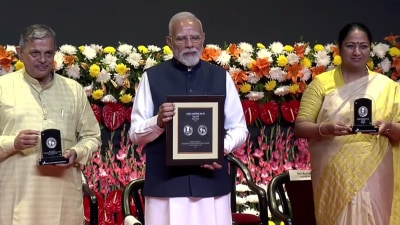Rules of law
Courts are so important. That’s why circumspection and careful selection are vital

Unambiguous punishment prevails at two ends of the spectrum — in totalitarian regimes and in robust democracies. In the former, the absence of dissent and the opacity of processes render the manner of articulation of sentences different from those in open societies. They come as midnight knocks, and dictatorships find particular pleasure in making a spectacle of punishment and public humiliation. In countries like India, extreme sentences — in effect, the death penalty — are accorded with a heavy heart. The course of the trial in each case is an articulation of submission of credible evidence and the reasons why the punishment thereafter given is necessary to ensure the rule of law. In this the judiciary’s role is central, and by upholding this responsibility the Indian judiciary has done so much to maintain confidence in all wings of government.
This is why we hope that a Supreme Court bench’s reference to hanging “some people in the public” was an aberration and the justices will apply correctives in the expression of such sentiments. The two-judge bench was hearing a bail application of a government employee accused in the fodder scam. Voicing a sentiment expressed by countless exasperated citizens at different times, they said, “The only way to rid the country of corruption is to hang a few of you from the lamp post.” The judges surely don’t expect to be taken literally on this. In case after case they have assuaged public anxiety by pulling the weight of the court and the law in order to check executive excesses and omissions. They are, in effect, the guarantee India has against the appalling spectre of public punishment. The rule of law has no place for sentiment.
Or good intentions. As this newspaper has already argued this week, it is outrageous that the civil aviation ministry is proposing to cover its inaction to modernise airports with a hefty airport congestion charge. The Delhi High Court merely echoed consumer sentiment — and common sense — when it called the charge “passenger unfriendly”. But under the Constitution this is the way it is: the executive has a mandate to make a mess of policy, and if it does so without infringing the law of the land, it can only be checked in legislative elections. Let the public mood be reflected by pollsters.



- 01
- 02
- 03
- 04
- 05




























